Leadership Team
Page Content
Center Director
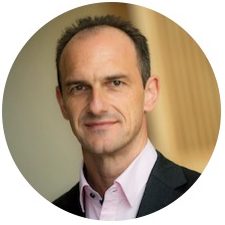
+ Expand All
Lars Bode, PhD
Professor, Department of Pediatrics, Division of Neonatology and Division of Pediatric Gastroenterology, Hepatology and Nutrition, University of California, San Diego
Chair of Collaborative Human Milk Research
Past-President, International Society for Research in Human Milk and Lactation
Dr. Bode’s laboratory focuses on human milk oligosaccharides (HMOs), a group of complex sugar molecules that represent the third most abundant component of human milk after lactose and lipids. The goal of Dr. Bode’s research is to understand how HMOs are synthesized in the human mammary gland and how they benefit the breast-fed infant and potentially also the breastfeeding mother. The laboratory employs a multidisciplinary collaborative research approach that combines preclinical studies and human cohort and intervention studies with the goal to identify structure-function relationships in a variety of clinical contexts related to maternal and infant health. The team has developed tools for rapid high-throughput HMO composition analysis and collaborates with partners from around the world to identify maternal ctors that influence HMO composition and to link HMO composition to infant health and disease outcomes.
Today, as Director of MOMI CORE, Dr. Bode dedicates his research excellence, leadership and partnership building skills to accelerate and effectively translate human milk research into improved maternal and infant health, globally.
Dr. Bode’s laboratory focuses on human milk oligosaccharides (HMOs), a group of complex sugar molecules that represent the third most abundant component of human milk after lactose and lipids. The goal of Dr. Bode’s research is to understand how HMOs are synthesized in the human mammary gland and how they benefit the breast-fed infant and potentially also the breastfeeding mother. The laboratory employs a multidisciplinary collaborative research approach that combines preclinical studies and human cohort and intervention studies with the goal to identify structure-function relationships in a variety of clinical contexts related to maternal and infant health. The team has developed tools for rapid high-throughput HMO composition analysis and collaborates with partners from around the world to identify maternal factors that influence HMO composition and to link HMO composition to infant health and disease outcomes.
Today, as Director of MOMI CORE, Dr. Bode dedicates his research excellence, leadership and partnership building skills to accelerate and effectively translate human milk research into improved maternal and infant health, globally.
Executive Director
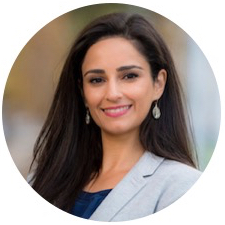
+ Expand All
Sara Moukarzel
Postdoctoral Fellow, Department of Education Studies, University of California, San Diego
Lecturer, Faculty of Nursing and Health Sciences, Notre Dame University, Lebanon
Dr. Moukarzel received her doctorate degree in human nutrition from the University of British Columbia (UBC)- Canada, under the mentorship of the late Dr. Sheila Innis, where she developed an analytical method to measure minor phospholipids in human milk and identified that these novel milk lipids alter brain composition in artificially-reared animal models of normal human development. Her masters research with Dr. Susan Carlson at the University of Kansas-Medical center focused on the relationship between maternal exposures during pregnancy, including vitamin D, and infant infections. Her graduate education was funded through the prestigious Fulbright Program- US Bureau of Educational and Cultural Affairs and through a Four-Year Doctoral Fellowship-UBC. In parallel to her curiosity to discover how human milk promotes infant development, her passion is to research and help implement effective strategies to improve uptake of research findings among health care professionals and the public, as means to facilitate translational research and improve public health. Today, her postdoctoral research at UC San Diego, in collaboration with Dr. Alan Daly, focuses on improving breastfeeding education curricula and teaching methods in both Pre-K12 schools and medical schools in San Diego and in her home country Lebanon
Trained as basic scientist with background in nutrition counseling, Dr. Moukarzel has experienced first-hand the challenges that the scientific community faces in translating their complex research findings into accurate and simple messages to the community. Through her postdoctoral research and her community partnership-building at MOMI CORE, she helps inform how the center shares its research findings in demographically-diverse target populations, for maximized impact on maternal and infant health.
Scientific Advisory Board
(in alphabetical order)

+ Expand All
Lars Bode, PhD
Professor, Department of Pediatrics, Division of Neonatology and Division of Pediatric Gastroenterology, Hepatology and Nutrition, University of California, San Diego
Chair of Collaborative Human Milk Research
Past-President, International Society for Research in Human Milk and Lactation
Dr. Bode’s laboratory focuses on human milk oligosaccharides (HMOs), a group of complex sugar molecules that represent the third most abundant component of human milk after lactose and lipids. The goal of Dr. Bode’s research is to understand how HMOs are synthesized in the human mammary gland and how they benefit the breast-fed infant and potentially also the breastfeeding mother. The laboratory employs a multidisciplinary collaborative research approach that combines preclinical studies and human cohort and intervention studies with the goal to identify structure-function relationships in a variety of clinical contexts related to maternal and infant health. The team has developed tools for rapid high-throughput HMO composition analysis and collaborates with partners from around the world to identify maternal ctors that influence HMO composition and to link HMO composition to infant health and disease outcomes.
Today, as Director of MOMI CORE, Dr. Bode dedicates his research excellence, leadership and partnership building skills to accelerate and effectively translate human milk research into improved maternal and infant health, globally.
Dr. Bode’s laboratory focuses on human milk oligosaccharides (HMOs), a group of complex sugar molecules that represent the third most abundant component of human milk after lactose and lipids. The goal of Dr. Bode’s research is to understand how HMOs are synthesized in the human mammary gland and how they benefit the breast-fed infant and potentially also the breastfeeding mother. The laboratory employs a multidisciplinary collaborative research approach that combines preclinical studies and human cohort and intervention studies with the goal to identify structure-function relationships in a variety of clinical contexts related to maternal and infant health. The team has developed tools for rapid high-throughput HMO composition analysis and collaborates with partners from around the world to identify maternal factors that influence HMO composition and to link HMO composition to infant health and disease outcomes.
Today, as Director of MOMI CORE, Dr. Bode dedicates his research excellence, leadership and partnership building skills to accelerate and effectively translate human milk research into improved maternal and infant health, globally.
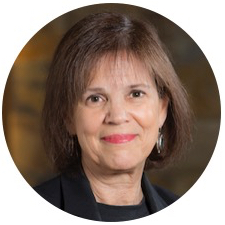
Christina D. Chambers, PhD, MPH
Professor, Division of Dysmorphology and Teratology, Department of Pediatrics, and Divisions of Epidemiology and Global Health, Department of Family Medicine and Public Health and Skaggs School of Pharmacy and Pharmaceutical Sciences, University of California, San Diego
Co-Director, Center for Better Beginnings
Program Director, Mommy’s Milk Human Milk Research Biorepository
Dr. Chambers has helped to pioneer the field of birth defects research and prevention, leading a number of national and international complex longitudinal cohort studies and clinical trials of prenatal exposures and child health and development. She has worked in collaboration with researchers from all over the world to link multiple sources of large, detailed data and biorepositories to answer study questions. Her research aims to develop interventions and diagnostic modalities to promote healthy pregnancies and prevent adverse outcomes associated with exposures during pregnancy and lactation. Dr. Chambers’ research has been instrumental in identifying previously unrecognized human teratogens, as well as ruling out substantial risk for medications and vaccines. She co-directs the Center for Better Beginnings, which is one of North America’s foremost institutes for breakthrough research and education in maternal health and child development; is the director of the UCSD CTRI Center for Life Course Research; is the program director of MotherToBaby California, a service providing evidence-based information on exposures during pregnancy and lactation for women and healthcare providers; and is the program director of Mommy’s Milk Human Milk Research Biorepository.
In collaboration with the UCSD Clinical and Translational Research Institute, Rady Children’s Hospital-San Diego and Skaggs School of Pharmacy and Pharmaceutical Sciences, Dr. Chambers founded Mommy’s Milk, a human milk research biorepository. The goal of this repository is to enable scientists from diverse fields to answer a wide variety of questions about human milk, including its unique biochemical properties and the extent to which pharmaceuticals and substances to which nursing mothers are exposed can be passed to the infant during breastfeeding. This biorepository was highlighted as a unique and valuable resource for critically needed research at the U.S. FDA Public Meeting on Drugs in Breastfeeding held in 2016.
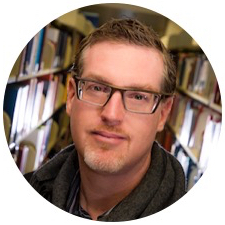
Alan J. Daly, PhD
Professor, Department of Education Studies, University of California, San Diego
Dr. Daly graduated from Clark University with a Bachelors of Arts in Psychology, received a Masters of Science in Counseling from San Diego State University, and a Master of Arts and Ph.D. in Education with an emphasis in Educational Leadership and Organizations from the University of California, Santa Barbara. Prior to coming to the university Dr. Daly had over 16 years of public education experience in a variety of positions ranging from classroom teacher to district psychologist to site administrator, providing him with a solid grounding in the world of practice. Dr. Daly has presented at the local, state, national, and international level regarding his practical and research work in organizational learning, policy implementation, social networks, and educational reform all with an equity mindset. His research and teaching primarily focuses on social network theory and analysis, leadership, educational policy, and research evidence use in improving teaching and learning. His work has been supported by grants through the WT Grant, Spencer, and Bill & Melinda Gates Foundations. His recent books include Social Network Theory and Educational Change published by Harvard Press, Using Research Evidence in Education published by Springer and Thinking and Acting Systemically: Improving Districts Under Pressure published by the American Educational Research Association. He was recently awarded a Fulbright Specialist grant for work in European universities.
Dr. Daly's work at its highest level is about understanding the conditions necessary for learning as well as supporting efforts at teaching. In addition, his work examines the uptake of research evidence in systems and how the role of social connectivity can play and influential and important role. In relation to human milk and lactation work and his role on advisory board, Dr. Daly’s work helps inform the way in which research and practices related to knowledge on human milk and lactation is taken up and influences both learning and teaching.
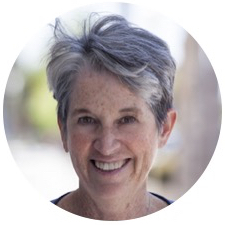
Sheila Gahagan, MD, MPH
Professor or Clinical Pediatrics, Department of Pediatrics, University of California, San Diego
Division Chief, Academic General Pediatrics, Child Development & Community Health, University of California San Diego
Vice Chair, Faculty Development, Department of Pediatrics, University of California San Diego
Dr. Gahagan is a developmental-behavioral pediatrician and epidemiologist. She has expertise in developmental origins of health and disease, especially with regard to early-life risk factors for chronic disease. Her research program aims to understand how early life experiences lead to long-term developmental, physical and mental health functioning with a focus on health disparities. Human milk feeding is an important strategy for acute and chronic disease prevention. She began her career as a pediatrician on the Navajo Reservation moving up to Chief Clinical Consultant for the Navajo Area Indian Health Service. She has focused her work on disadvantaged minority populations 30 years including American Indian and Mexican American children in Arizona (1984 – 1995), African American children in Michigan (1995 – 2009) and Mexican American children in San Diego (2009 – current). In all of these settings, she has been a strong proponent for breastfeeding. Throughout her career, she has sought out interdisciplinary collaborations seeing the importance of approaching complex questions from multiple paradigms. Within this framework, she is an expert on early life nutrition, children’s growth, development of obesity and its consequences. Her current NIH-funded research focuses on prevention of infancy iron deficiency anemia and its long-term consequences; and early life factors related to preventing child and adolescent obesity. Gahagan leads a longitudinal cohort now in its 25th year with over 1000 young adult participants involved since infancy. Over the past 4 years, she has published 4 scientific articles related to breastfeeding and later health.
In the Division of Academic General Pediatrics, Child Development and Community Health led by Dr. Gahagan, there are two important and impactful successful lactation support programs. One addresses policies to decrease barriers to breastfeeding. The second is a clinical program that promotes continued human milk feeding for former premature infants. Since 2002, The Pediatric Department Center for Community Health has been providing Lactation Supportive Environment (LSE) programs in San Diego County. This program, overseen by Blanca Melendrez, and directed by Ann Kashiwa, seeks to eliminate barriers to breastfeeding through state and local policy development and systems and environmental change strategies. Goals include increasing the number of community healthcare centers, school districts, businesses, and childcare facilities that adopt policies supportive of breastfeeding and lactation accommodation. LSE programs have been successful at breaking down breastfeeding barriers. Over the past 16 years, we have received funding from the U.S. Centers for Disease Control & Prevention, San Diego County Health & Human Services Administration, First 5 San Diego and First 5 California. The Premature Infant Nutrition Clinic (PINC), under the direction of Dr. Eyla Boies, has five goals: 1) to work with infant’s primary care provider to improve the infants growth and nutrition; 2) to promote human milk nutrition after NICU discharge; to optimize the mother’s milk supply; 3) to assist mothers and infants with the transition to nursing at the breast; and 4) to monitor the nutritional status of the infant.
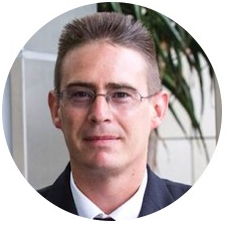
Rob Knight, PhD
Professor, Division of Host-Microbe Systems and Therapeutics, Department of Pediatrics and Department of Computer Science & Engineering, University of California, San Diego
Director, Center for Microbiome Innovation (CMI), University of California, San Diego
Co-founder, American Gut Project
Dr. Knight's lab develops new technologies for analyzing complex microbial communities, including the human microbiome. His group developed the UniFrac distance metric, QIIME software pipeline, and highly multiplexed error-correcting barcoded PCR strateigies that are now widely used in microbiome research around the world. Some of their key activities include work on the Human Microbiome Project and its successor the iHMP, which seek to define the structure and function of human-associated microbial communities and their links to disease; the Earth Microbiome Project, which characterizes environmental microbiomes around the planet, and the American Gut Project, which uses crowdsourcing and crowdfunding to allow members of the public to understand their own microbiomes and compare them to others. Current topics of interest include understanding transmission of microbiomes within a family unit, exchange of microbiomes among humans, animals, and the environments they inhabit, improved predictive models of disease based on the microbiome and metabolome, and better methods of spatial and temporal microbiome analyses that include metabolomics and other omics data layers.
Dr. Knight's lab performed some of the first large-scale studies on the baseline characterization of the human microbiome and on the development of the human microbiome, including the impacts of delivery mode, early-life antibiotics, and breastfeeding, as well as how these and other variables interact with one another. The group also developed protocols for performing microbial community characterization from low-biomass samples such as urine, forensic swabs, plasma, and near-sterile environments such as NICUs and spacecraft assembly plants, which can be applied to human breast milk, allowing higher confidence in the resulting microbial communities there. Additionally, their tools for relating highly multivariate data layers to one another in a timeseries context are critical for understanding how human milk components shape the developing infant gut microbiome, and their Bayesian source tracking tools are important for understanding the interplay between the microbiomes in human milk, the mouth and gut of the infant, and the skin of the mother.
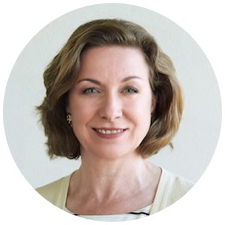
Katharina Lichtner, PhD
Managing Director, Family Larsson-Rosenquist Foundation
Dr. Lichtner holds a degree in biochemistry and molecular biology from the University of Basle, Switzerland, and completed her PhD studies on pre T-cell receptors at the Basle Institute for Immunology under the supervision of Prof. Harald von Boehmer and Prof. Gottfried Schatz. She began her career with the consulting firm McKinsey & Company in Zurich. She went on to become a successful entrepreneur, setting up and then leading two companies, both strategically and operationally. Capital Dynamics, which she co-founded in 1999, is a global private equity fund of funds manager. At the time she moved on, it had 160 professionals and 14 offices worldwide, managing over $18bn in assets for institutional investors. In 2013, she began leading AIM Sport Vision, a start-up that took Digital Overlay® – a ground-breaking virtual replacement technology for in-stadium advertising – from a technology invention to market entry. Since 2015 she has worked for the Family Larsson-Rosenquist Foundation, the only foundation in the world with a primary focus on promoting and supporting scientific research in human milk nutrition. Here, she is combining her scientific background with her leadership experience to help the Foundation become a global leader in the field of human milk.
Dr. Lichtner has published several books as lead editor, as well as many articles on private equity, clean energy and business creation. She served on the Board of Capital Dynamics during her tenure, was a 4-year member of the International Private Equity Valuation Board, and currently serves on the Guarantees Committee of the Swiss Technology fund.
As Managing Director of the Foundation, Dr. Lichtner promotes and supports the scientific and public recognition of human milk as the best nutrition for newborns and infants, according to current scientific knowledge. Identifying knowledge gaps, interdisciplinary opportunities and sustainability initiatives for the well-being of mothers and children are key focus areas for the Foundations’ project endowments. Dr. Lichtner is a long-standing entrepreneur with a successful track record in building businesses that grow and prosper. She is also an accomplished communicator, able to transfer knowledge to diverse groups of stakeholders, who often have differing agendas. By combining her strategic leadership skills, operational experience and wide-ranging financial expertise, Dr. Lichtner transforms ideas into viable operations.
Show additional content areas below
ContentA1